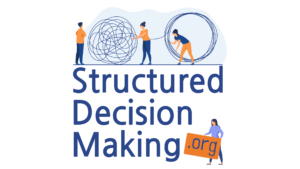Value of Information
Making high-quality decisions is a critical aspect of running a successful business or organization. Structured decision making provides a framework for making informed choices, but to be most effective, the process must be based on accurate and complete information. However, in natural resource management, decisions are often plagued by uncertainties, and decision makers must evaluate whether to obtain additional information.
Deciding whether to gather additional data (and therefore, to delay the decision) should be based on a cost-benefit analysis. In SDM, the value of information (VOI) refers to the expected benefits of obtaining additional information compared to the cost of obtaining that information. If reducing an uncertainty would lead to a different decision (with greater expected benefits), then it may be worth spending time and resources to reduce the knowledge gap – but otherwise, maybe
For decisions that are recurrent, there may be greater benefits to reducing uncertainties, as there is potential to apply learning to improve future decisions. In these situations, adaptive management provides a framework for progressively reducing uncertainties without delaying decision implementation.
One of the key benefits of structured decision making is that it allows organizations to make informed decisions based on a systematic and consistent process. By using the VOI concept, decision-makers can evaluate the potential benefits of obtaining additional information and make informed choices about whether to invest in obtaining it.

